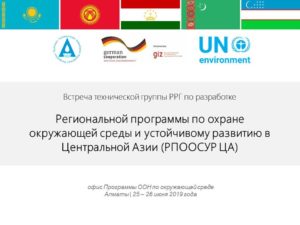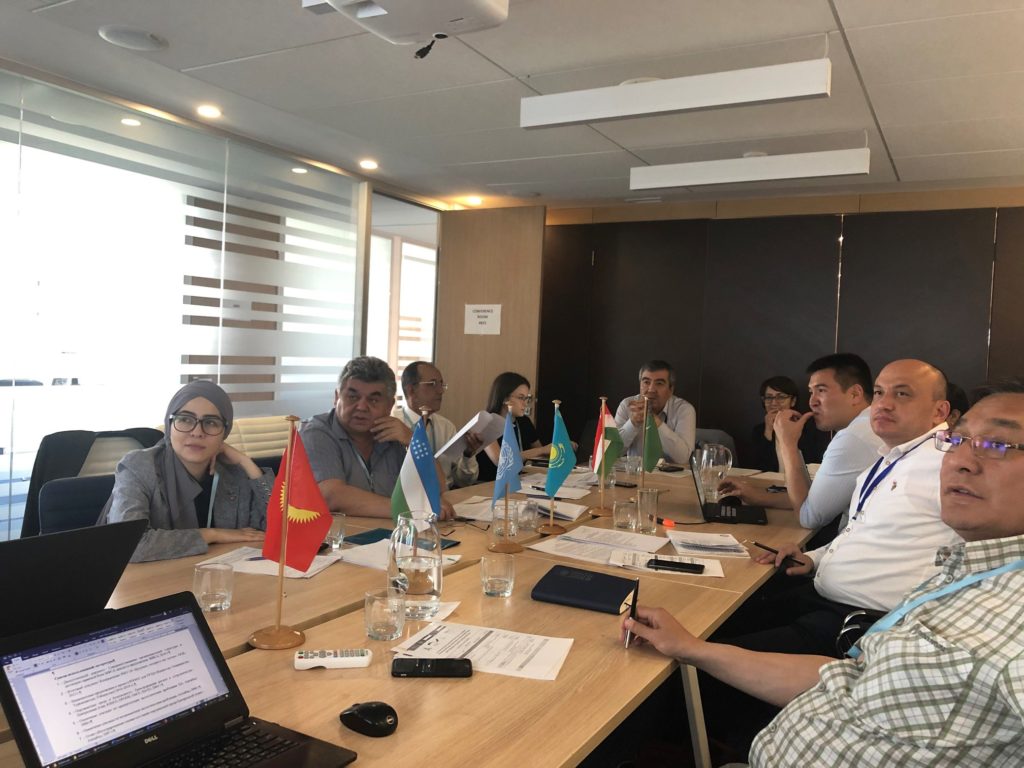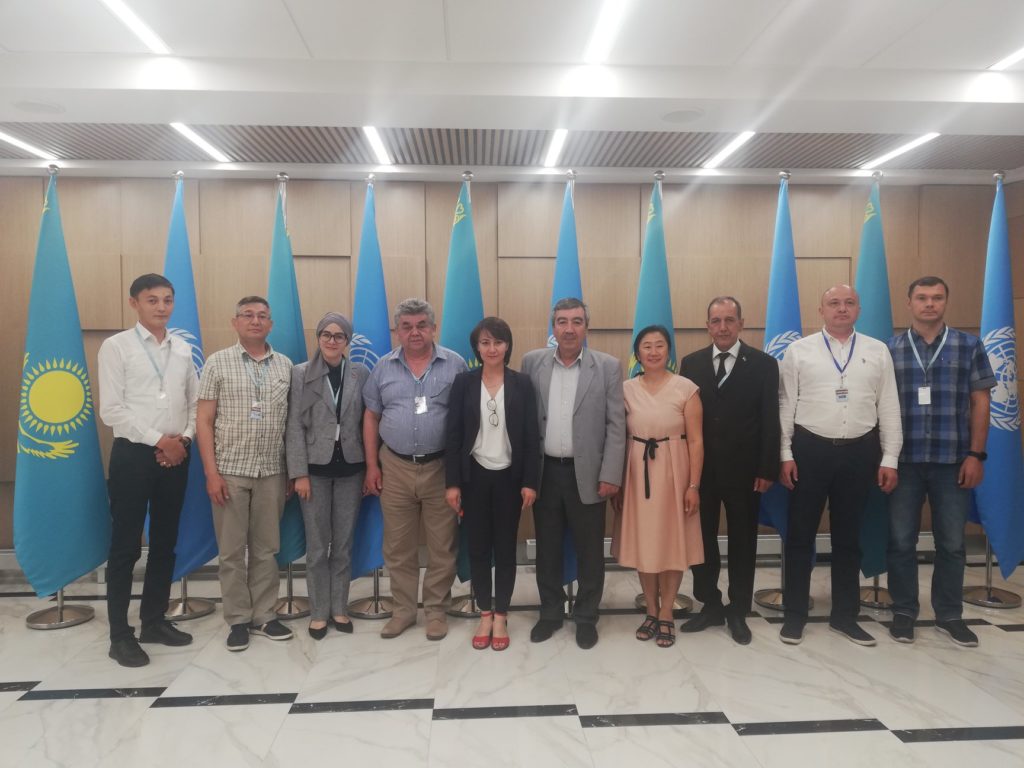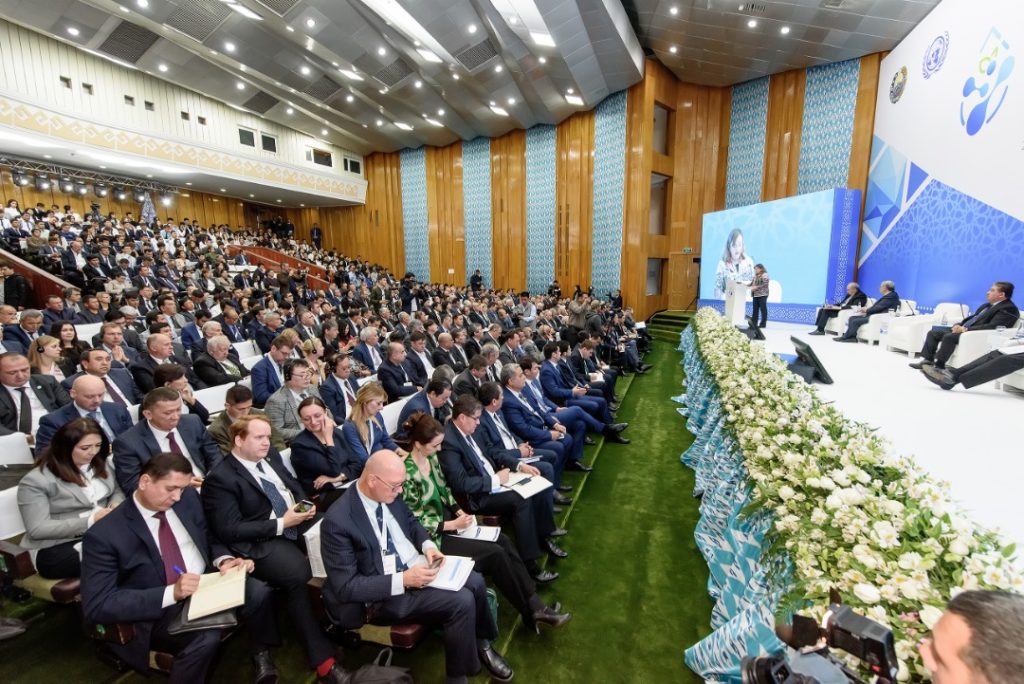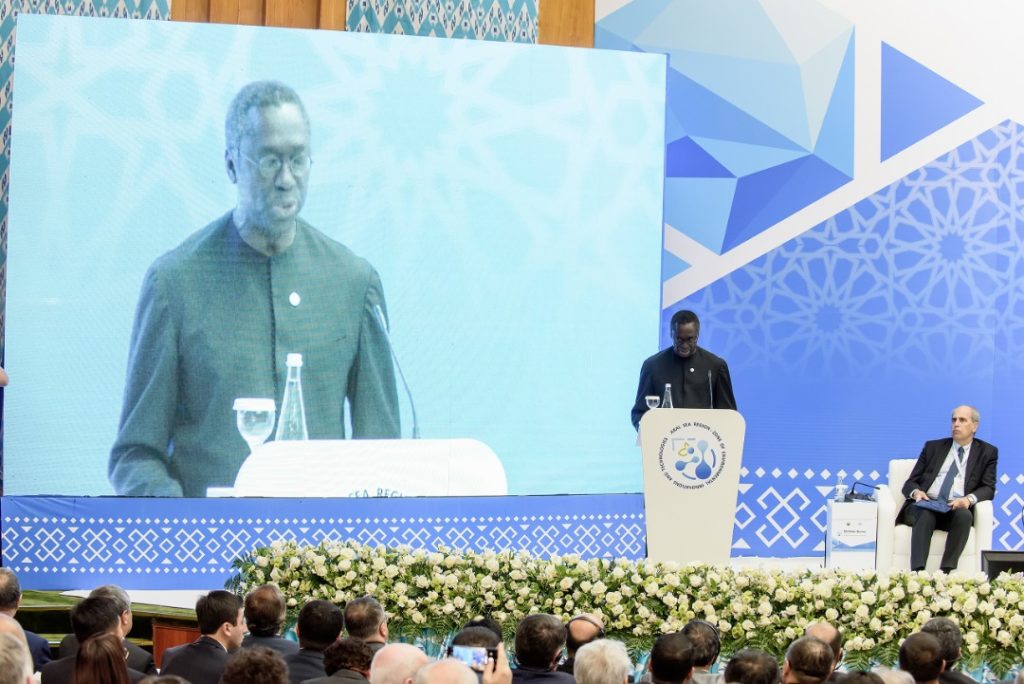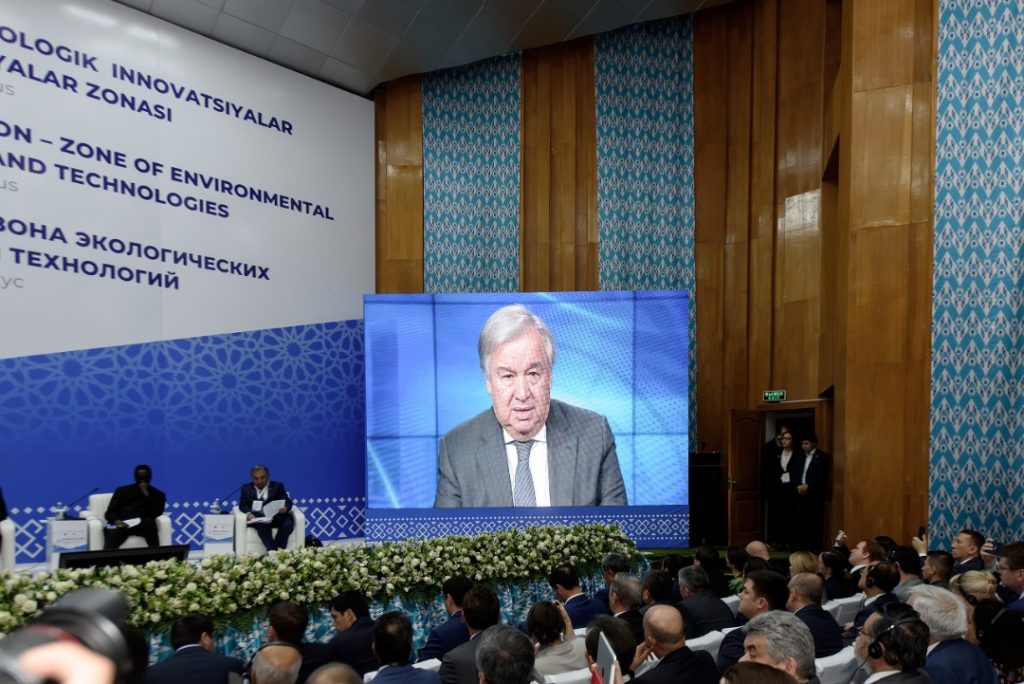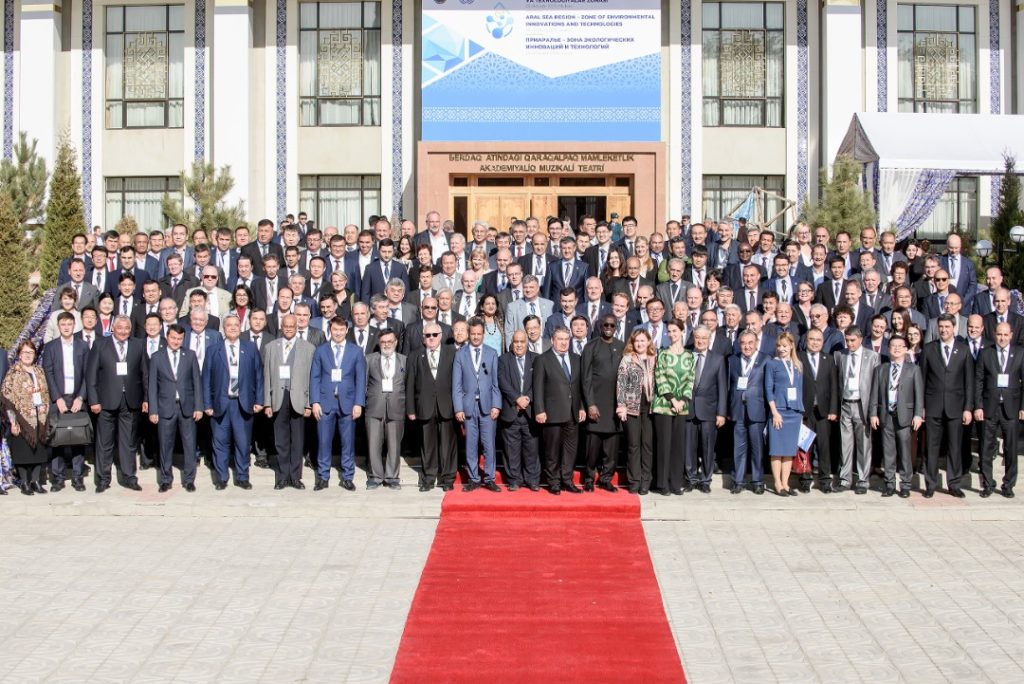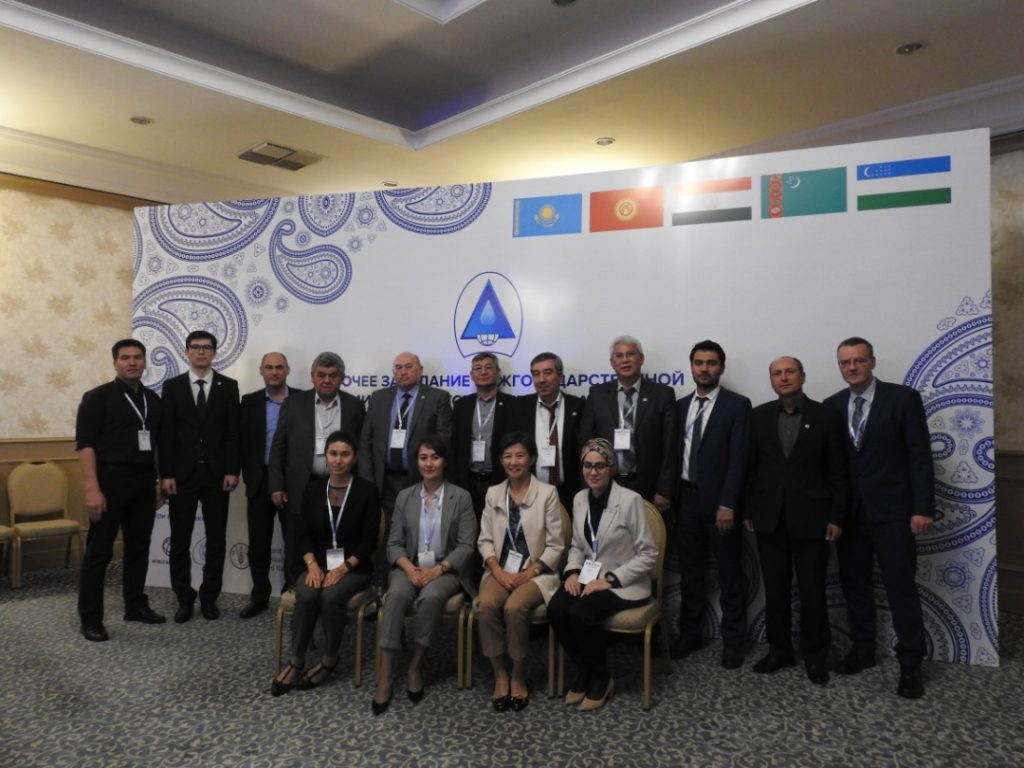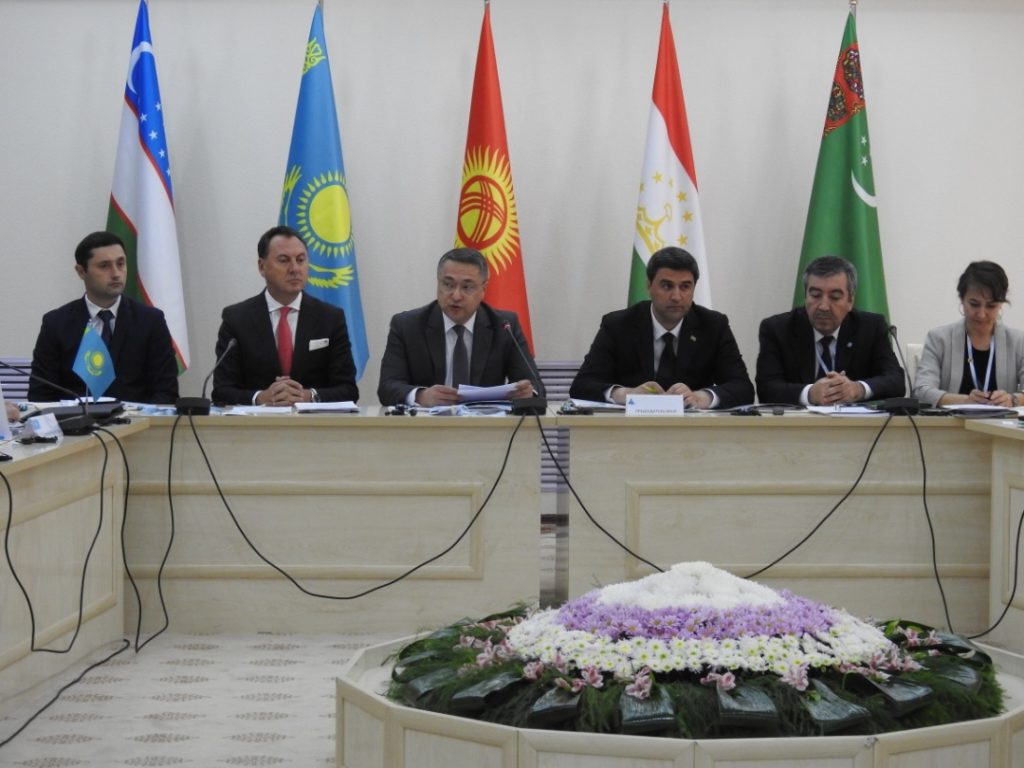In Central Asian countries, natural resource management is strongly centralized, which requires creating additional opportunities for involving the private sector and local people in the dialogue on the sustainable use of these resources taking into account economic, social and environmental aspects.
At the regional level, starting from 2017, Deutsche Gesellschaft für Internationale Zusammenarbeit (GIZ) GmbH (German Federal Enterprise for International Cooperation) has been providing expert support in the development of the Regional Environmental Program for Sustainable Development in Central Asia (REPSD CA), important for all five countries. Together with other international partners, such as the United Nations Environment Program, GIZ supported technical meetings, meetings of national working groups and the regional working group (1st: December 2018 in Almaty; 2nd April 2019 in Tashkent; 3rd April 2019 in Almaty).
The meetings helped to reveal the national priorities of each of the countries participating in the Interstate Commission on Sustainable Development (ICSD). Only those topics that were of interest to two or more countries were submitted for discussion by the regional working group in order to ensure the regional nature of meetings. Numerous remote and personal discussions made it was possible to reach a consensus of the parties and to prepare draft REPSD CA, which was adopted in October 2019.
The regional cooperation of the GIZ Program with the ICSD Scientific Information Center was established in January 2016. The Program team assisted in the development of a systematic organizational process to strengthen the overall management and role of the ICSD among the founding countries; the capacity of ICSD bodies; the information policy and the workflow system, mechanisms and tools of external and internal communication; providing technical assistance to SIC branches according to their needs.
At the national level, the GIZ Regional Program team provides support to national organizations in the implementation of private afforestation approaches. In accordance with the Forest Code [1, 6], private forestry is formed by artificial plantations of various purposes, nurseries and plantations created at the expense of individuals and non-state legal entities. The private afforestation approach aims to reduce the burden on natural forests and meet the growing demand for wood for industrial and energy purposes.
Due to close cooperation at different levels, the Program participates in joint development of guidelines for state support mechanisms for increasing the forest area through the use of private funds for afforestation. Work is also underway on implementation of these principles in the political dialogue on large-scale private investment in the forest sector.
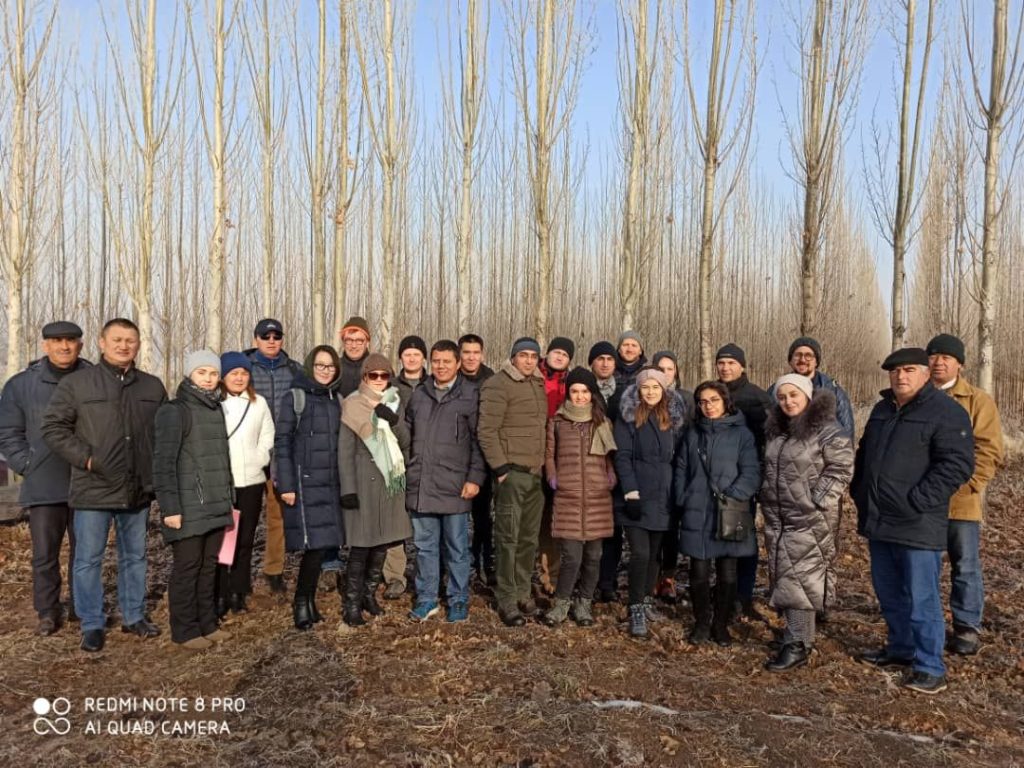
At the local level, the Program supports the piloting of private afforestation in selected sites in Almaty, Akmola and Zhambyl regions. Regular consultations, support in collecting technical information and conducting activities to improve skills and enhance the capacity of stakeholders accompany all processes. Kazakhstan is one of the countries that may be most affected by climate change. Extreme weather events, such as heat waves and torrential rains followed by floods are expected to become more intense and frequent. Melting glaciers in the highlands of Central Asia will reduce the amount of water available for irrigation in late summer and will lead to an increase in water flow in spring. All this will adversely affect the economy, agriculture and aggravate environmental and social problems. Recognizing the need for action to reduce negative changes, Kazakhstan ratified the Paris Agreement in 2016, thereby pledging to help keep global average temperature growth below 2°C compared with the pre-industrial era. This means that the country must reduce greenhouse gas emissions by 15 percent, and in the case of international support – by 25 percent by 2030 from the 1990 level. The implementation of the 2013 Concept for Transition to a Green Economy should primarily help in fulfilling these obligations.
The Paris Agreement also clearly expresses the need for each country to participate in adaptation planning processes and implementation of mitigation measures. GIZ and the NAP Global Network are currently supporting line ministries in identifying opportunities for developing adaptation measures and their practical implementation at the national and regional levels. In this vein, the GIZ Regional Program closely cooperates with the regional project “Ecosystem-Based Adaptation to Climate Change in High Mountainous Regions of Central Asia”.
